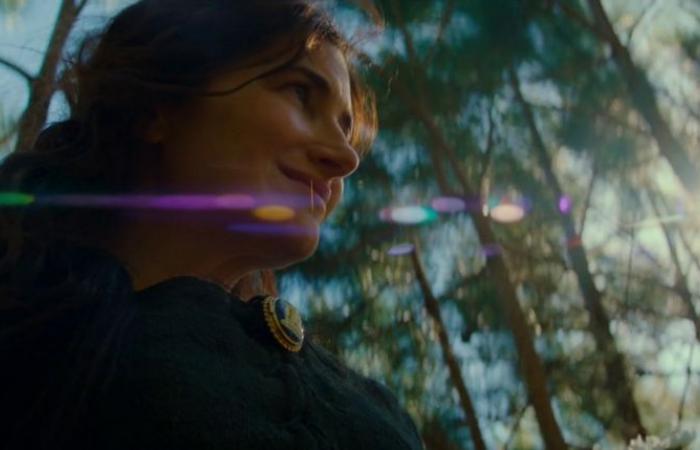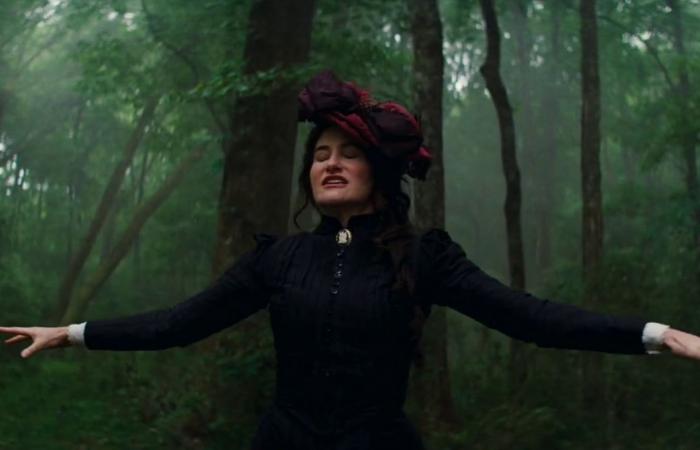The mini-series Agatha All Along ends in style with its episodes 8 and 9, “Follow Me My Friend/To Glory at the End” and “Maiden, Mother, Crone”, offering fans expected answers and a deeper connection with WandaVision. These last episodes intelligently develop the character of Agatha Harkness, exploring her past, her motivations, and her links with the secondary characters, Billy Maximoff in the lead. In this article, I offer an in-depth analysis of this conclusion and the potential implications for the future of the MCU. One of the most striking revelations of this finale is Billy's role in the creation of the Witche’s Roada mystical space initially formed by Agatha herself, but which takes on new meaning thanks to Billy's unconscious powers. This space represents a place where magic and memories mingle, a bit like Westview for Wanda in WandaVision.
This metaphor for Billy's memory and redemption reinforces the idea that every act of magic is influenced by the feelings and past of the wizard or witch in question. Agatha, in guiding Billy through this introspection, offers a kind of ambiguous mentorship. Unlike other mentors in the MCU, she is neither completely benevolent nor completely malevolent, which makes her more fascinating. In a dynamic that evokes complex family relationships, Agatha All Along here exploits the contradictory nature of Agatha, capable of compassion but also of calculated cruelty. The final episodes also dig into Agatha's past, revealing that she was a mother herself, long before she crossed paths with Billy. Her son, Nicholas Scratch, was dear to her in a way rare for her, and his death left a deep mark on her life.
This story of tragic motherhood resonates with dark echoes of Wanda's own experience as a mother, making Agatha All Along an alternative, less idealized reflection of motherhood in the MCU. The episode also shows how Agatha's relationship with Death itself, embodied by the character of Rio Vidal, influences her vision of life and the afterlife. The series here reinforces the idea that Agatha is not seeking redemption, but is motivated by complex emotional attachments. By sacrificing her life for Billy, she shows an ounce of generosity, although it remains ambiguous. Is it out of sincere attachment to Billy, or simply to get away from Death who has been chasing her for centuries? One of the series' successes is its ability to create a satisfying conclusion for Agatha without compromising her character as an antagonist. Unlike other characters in the MCU, often treated as misunderstood heroes, Agatha remains an ambivalent figure here.
This ending does not seek to rehabilitate her, but rather to deepen our understanding of her motivations. This nuance allows the series to remain consistent with the character it has built since its appearance in WandaVision. Kathryn Hahn offers a powerful interpretation, allowing us to perceive the emotional intensity and ambivalence of her character. Her final sacrifice seems more symbolic than truly redemptive, as if Agatha deliberately remained in the shadows. The prospect of her returning as a spiritual guide for Billy opens up intriguing possibilities for future episodes or appearances in other MCU series, without promising full rehabilitation. The series suggests that Agatha and Billy will have a future in the Marvel universe, but perhaps under other titles or series.
If a second season ofAgatha All Along is unlikely, the possibility of Agatha being integrated into storylines surrounding Billy Maximoff or even the Richards family of Fantastic 4 remains plausible. With her ability to interact with characters from different corners of the MCU, she could well become a subtle link between the magical intrigues of the MCU, in the wake of Wanda. Finally, the fact that Agatha remains a dematerialized spirit at the end of the series, far from closing doors to her, could well enrich the MCU by adding appearances of magical “ghosts” in other series or films. Additionally, the mystery surrounding her pendant and Nicholas' lock of hair suggests that Agatha could one day return to physical form, if the plot requires it. This duality of spirit and matter offers numerous narrative opportunities.
Agatha All Along shows us that a Marvel series can be as much entertainment as it is a character study. Episodes 8 and 9, by satisfactorily concluding Agatha's narrative arc, bring rare depth and complexity to an MCU anti-heroine. Where WandaVision explored pain and loss from an optimistic perspective, Agatha All Along delves into the same themes with a more sinister and ambivalent touch, emphasizing the consequences of dark magic and twisted family ties. This final chapter leaves a lasting impression and perhaps the desire to watch the series again, this time knowing that all the clues were laid from the start. This quality of revision gives the series a timeless feel, as if each scene needs to be revisited to fully grasp its meaning. In this, Agatha All Along is an unexpected success of the MCU, a series that deserves to be rediscovered for the richness of its secrets and the complexity of its main character.
Note : 7.5/10. In short, a successful end to the mini-series for Agatha All Along.
Available on Disney+







